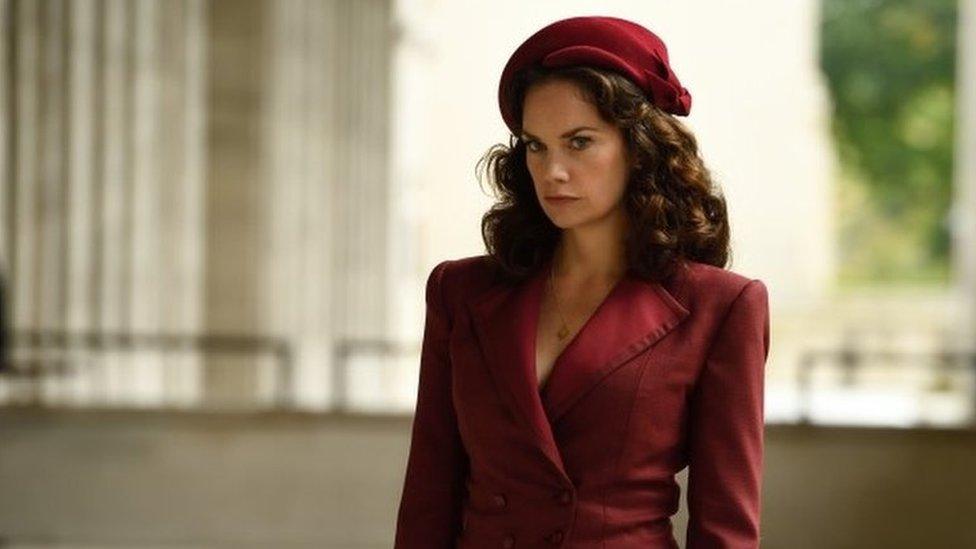Coronavirus: TV and film sectors 'need government help'
- Published
- comments
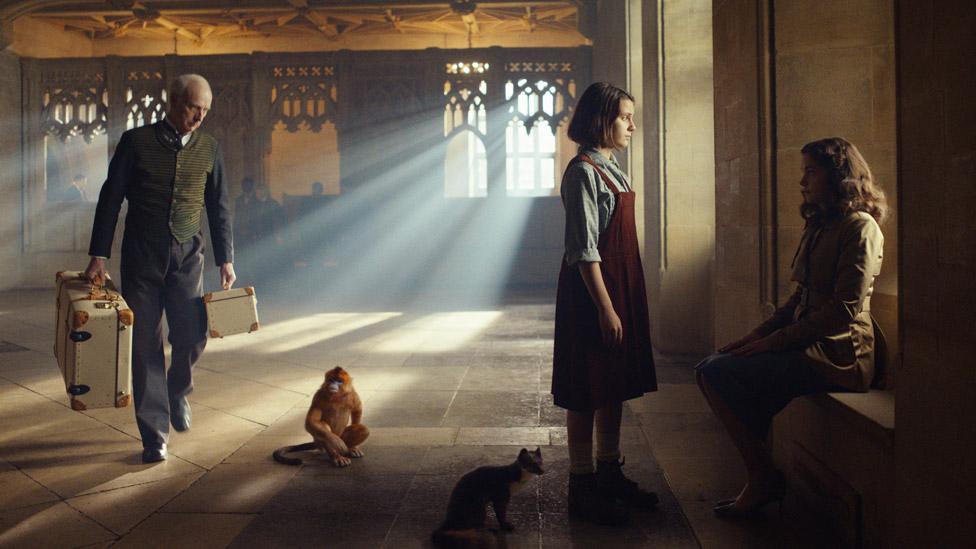
Production on the next series of His Dark Materials halted when lockdown began
Independent drama production in Wales will be unable to restart after the pandemic without UK government support, industry leaders have said.
Bad Wolf Studios in Cardiff, which produced His Dark Materials, said resuming would be expensive, with questions over the affordability of insurance.
The firm said "it's going to be tough".
The UK government said it was "working closely" with the film and TV industry to address concerns about insurance.
The Welsh Government said it was "committed to doing everything possible" to support the sector.
Bad Wolf was in the middle of filming the last episode of the second series of His Dark Materials when lockdown struck.
"It was a real shock. It got to a situation where due to social distancing we couldn't carry on filming," said Natasha Hale, Bad Wolf's chief operating officer.
"We were kind of forced into that decision we had to keep our crew safe, and our cast safe. We had to stop filming, which was hugely, hugely disappointing for everybody, and extremely costly."
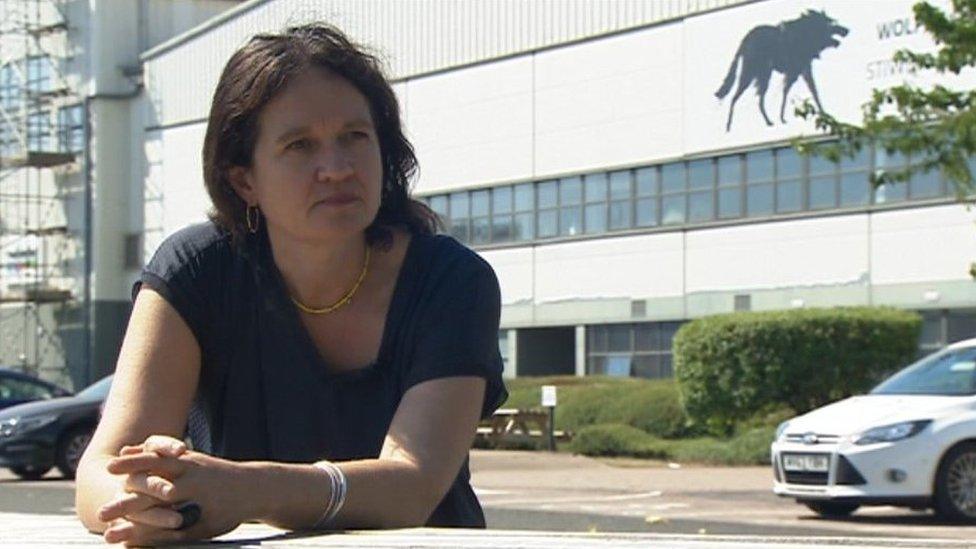
Natasha Hale outside Bad Wolf studios in Cardiff
She said the company were able to furlough half of the 150 freelancers working on the show, but the other half were given their notice.
"It was a huge blow," she said.
Bad Wolf is aiming to restart filming with series three of A Discovery of Witches in September, with health and safety being the top priority, but accommodating social distancing will not come cheap.
However, the biggest concern for Bad Wolf and other independent companies is insurance to protect them from another lockdown.
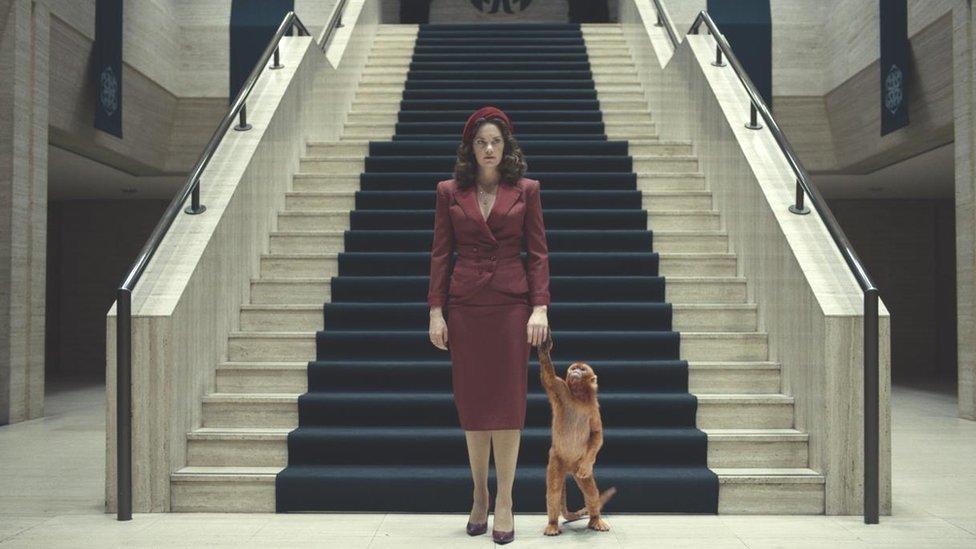
His Dark Materials, starring Ruth Wilson, was filmed inside the Welsh Government's headquarters in Cathays Park
Ms Hale added: "If we have to stop production or if we have to leave the production totally, there is no insurance and who is going to take responsibility for that? We don't know yet.
"I think really the government are going to have to do something because I'm not sure how productions are really going to get back on their feet without some kind of support on the lack of insurance."
Teledwyr Annibynnol Cymru (TAC), a body which represents independent television companies in Wales, said the extra cost of implementing safety procedures would fall on small, independent companies.
Chief executive, Luned Whelan said: "As guidelines are put in place for safety on set there will be additional costs and those costs are going to be considerable and they're going to fall on the producer."
His Dark Materials: Lin-Manuel Miranda shows us behind the scenes
Simon Curtis from Equity, the trade union for performers and creative practitioners, said most of its members "would love to be back at work" but the biggest difficulty was "making sure that it's safe to return".
On the set of Pobol y Cwm, the BBC's longest-running TV soap, discussions are ongoing about how to return to filming.
The series' producer, Nest Gwenllian Roberts, wants production to restart as quickly as restrictions allow, but accepts recreating the intimacy of drama will be challenging.
"A soap is births, deaths and marriages and we're still striving to achieve all that within the Covid restrictions and by keeping social distance," she said.
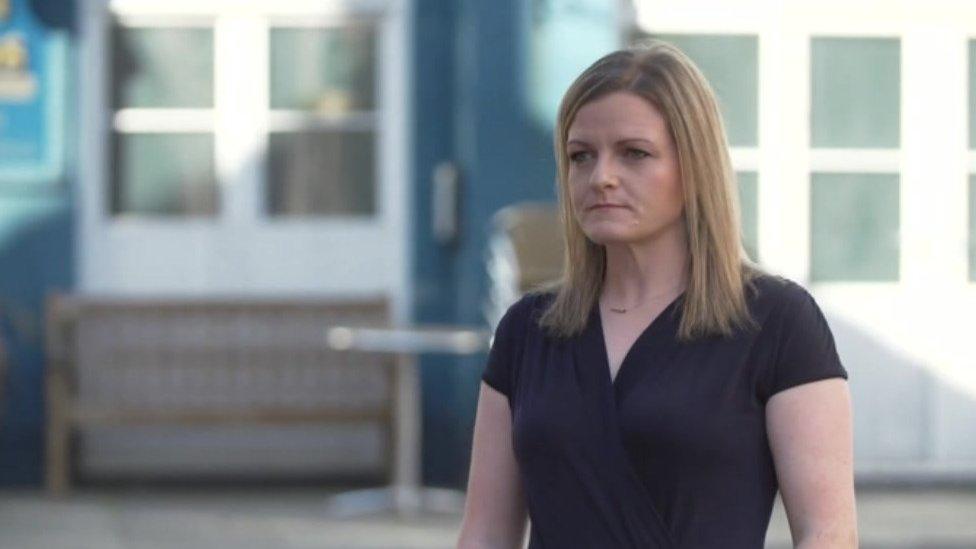
Nest Gwenllian Roberts says distancing measures will make creating intimacy challenging
A set of guidelines have been drawn up by broadcasters and Pact, the media trade association, in order to help production companies get back on set.
These include keeping everyone two metres apart, cast members applying their own make-up, equipment being sanitised between uses and reducing the number of people on set.
Mr Curtis said for some production companies, particularly in Wales, the cost of putting these measures in place may be prohibitive.
"It's an area that the [Welsh] government has already heavily invested in, but it does bring a huge amount of return to Wales.
"So, a relatively small amount of investment now will see return in the future… I think that's the argument we have to make", he said.
How much money do creative industries make in Wales?

The creative industries as a whole is one of the fastest-growing sectors of the economy, according to the Welsh Government.
It has an annual turnover of more than £2.2bn and employs more than 56,000 people - an increase of 40% from 10 years ago.
The Welsh Government said its Creative Wales unit had been working with the film and TV sector during these "uncertain times".
It said it had recently offered £300,000 development funding so "good projects can continue to be developed whilst there is a hiatus in production".
"We have established a screen recovery group to discuss the challenges the sector is facing and we will continue to speak to the sector as the guidance is developed," a spokesman added.
"We are committed to doing everything possible to support the resilience, creativity and partnership which is being shown by the sector."
A spokesman from the UK government's Department of Sport, Media and Culture said: "We are working closely with the screen sector to understand the full extent of concerns about insurance and explore ways they can be effectively addressed."
- Published14 May 2020

- Published19 May 2020
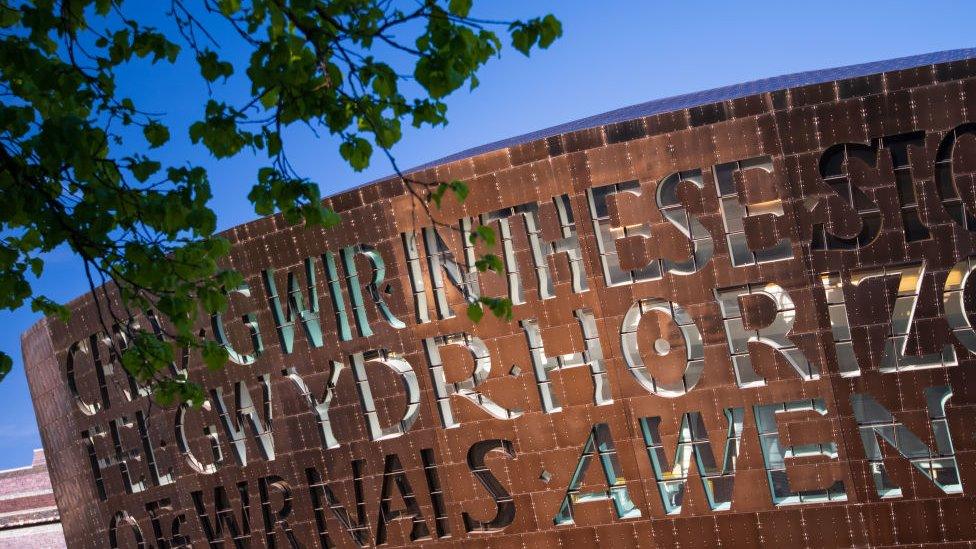
- Published24 March 2020
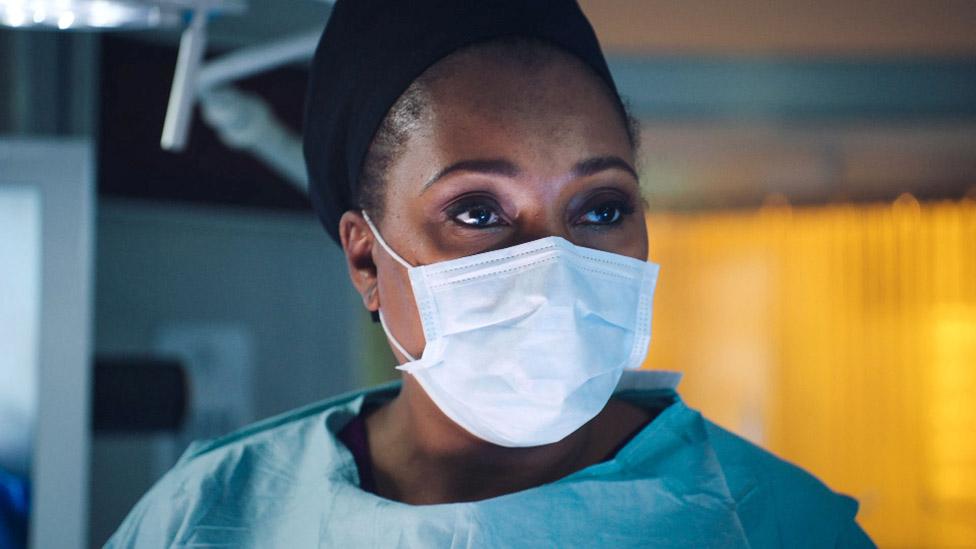
- Published22 July 2020
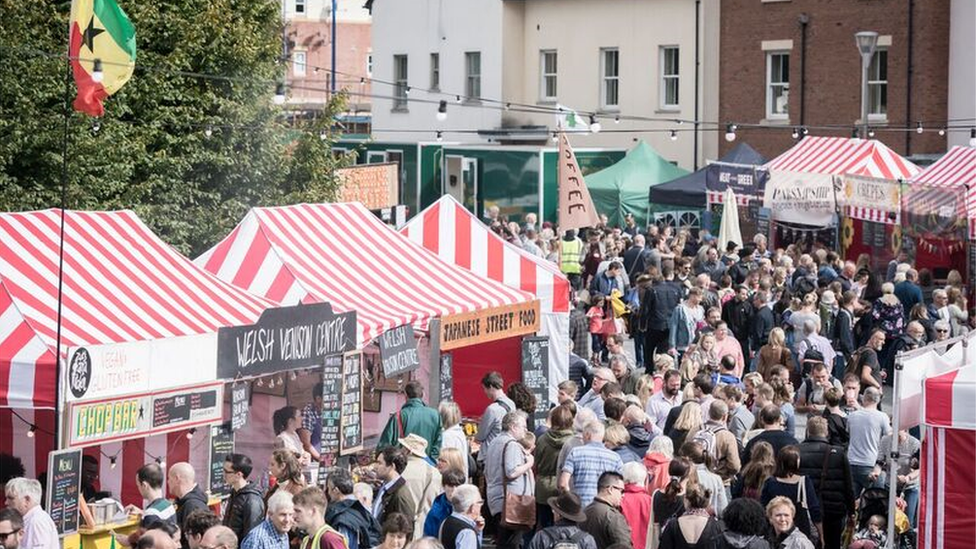
- Published18 May 2020
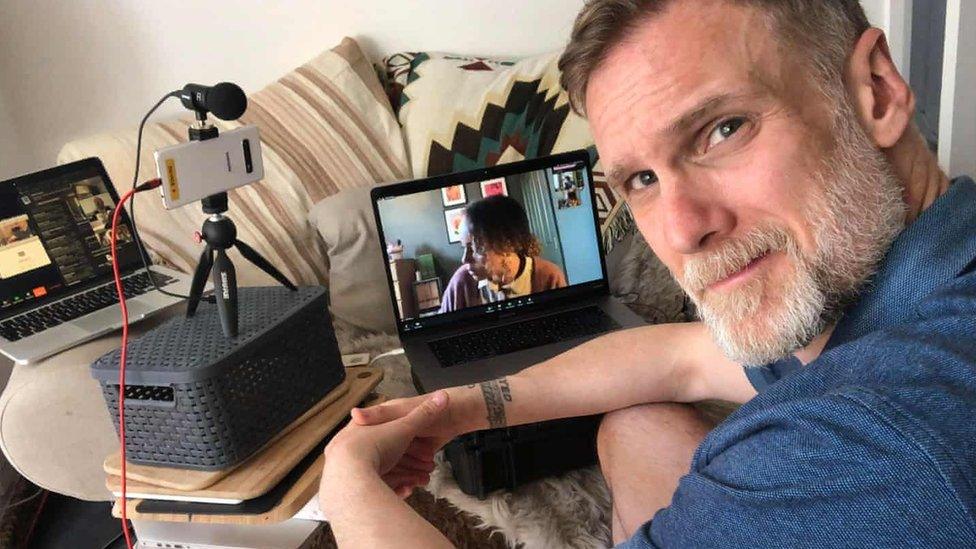
- Published23 February 2020
